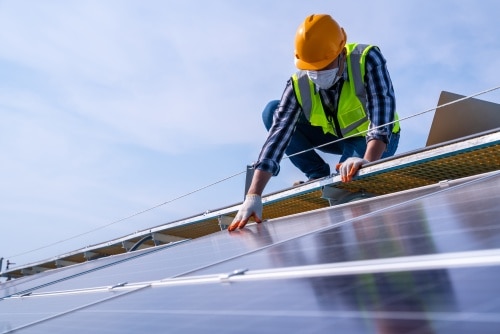The Tokyo Metropolitan Government has issued a mandate that requires all new houses built by large-scale homebuilders must install solar power panels to reduce household carbon emissions.
Passed by the city’s local assembly in mid-December takes effect in April 2025, the new regulation will compel about 50 major home developers to provide renewable energy power sources – mainly solar panels – to homes of up to 2,000sqm.
The regulation, the first of its kind for a Japanese municipality, aims to cut in half Tokyo’s greenhouse gas emissions by 2030 compared with the 2000 levels. The city hopes to achieve net zero emission by 2050.
Compared with other sectors, residential buildings are the only one the have recorded an increase in energy consumption since 2000 – making the new regulation imperative to the city’s goal for sustainability.
“Just 4% of buildings where solar panels could be installed in the city have them now,” said Tokyo Governor Yuriko Koike. “There is no time to waste.”
Buildings account for 70% of CO2 emissions, according to data from the Bureau of Environment of the Tokyo Metropolitan Government. By 2050, it is expected that about half of these existing buildings (70% of which are residential) will be replaced by newly constructed ones.
The amount of CO2 reduced through generating 4kW of solar power is equivalent to the amount of CO2 absorbed by a 2,000m2 cedar forest (about 200 trees).
Furthermore, with the installation of solar panels, households in Tokyo are expected to save about 7,800 yen a month or approximately 93,600 yen a year. Also, the system installation cost of about 980,000 yen can be recouped in about 6 years under the currently available grant of 100,000 yen




